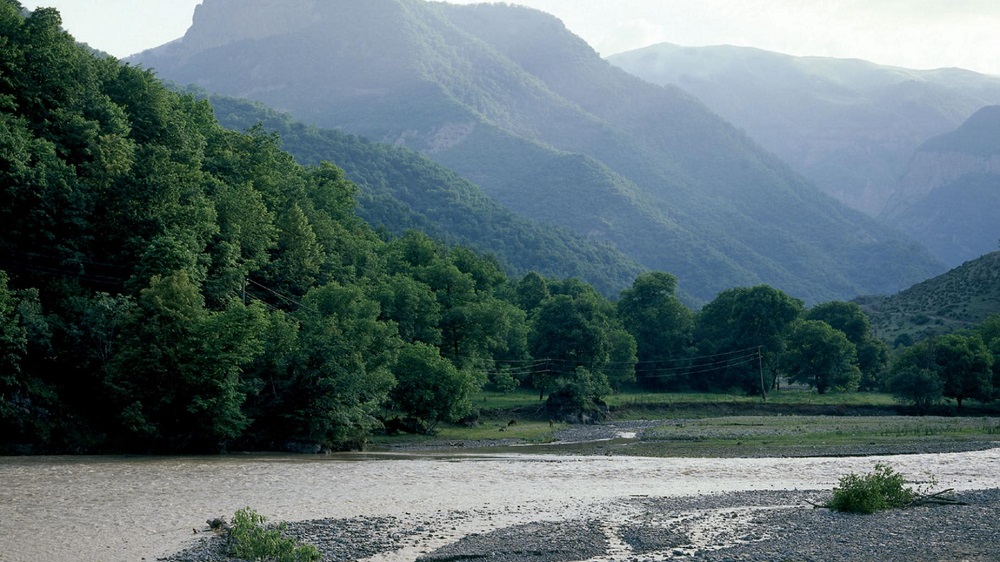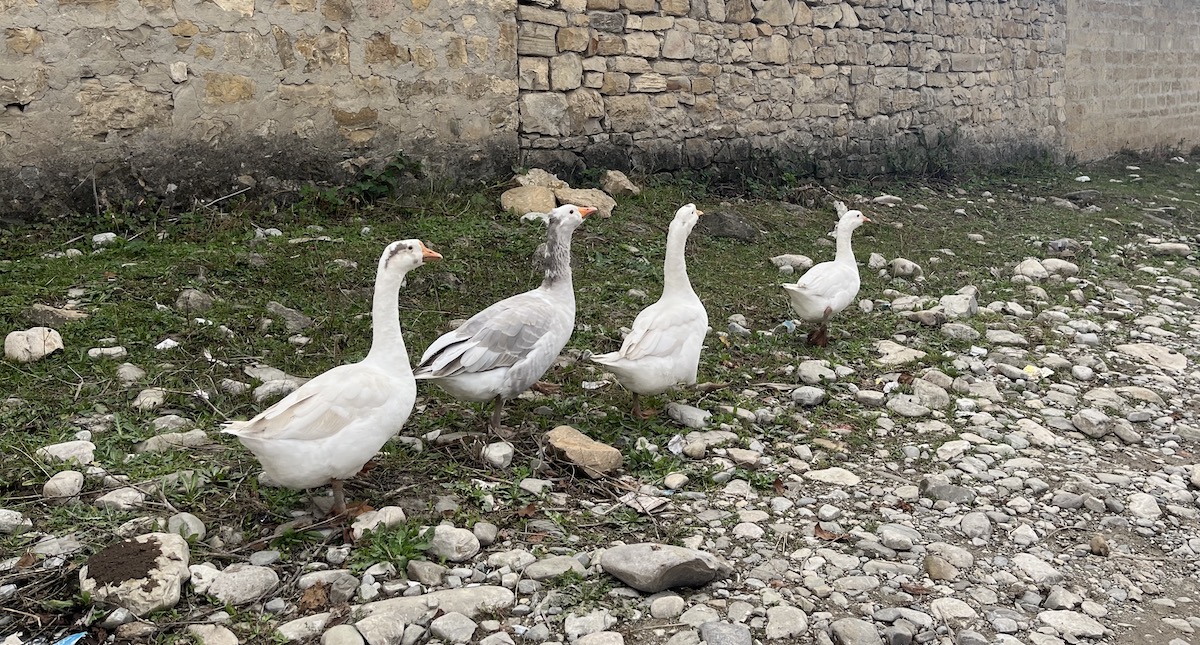Domestic policy
Azerbaijan vs. Armenia in international court


Azerbaijan vs. Armenia in international court
Azerbaijan has appealed to the International Court of Justice with a claim against Armenia. Baku is demanding reparations from Yerevan for the “destroyed environment and biodiversity” during the period when Karabakh was under the control of the Armenian armed forces. This is the first time that any country has applied for interstate arbitration under the Berne Convention. If Azerbaijan wins, it will set a precedent for placing economic value on biodiversity and environmental destruction, The Guardian writes.
- “If Abkhazia wants to be recognized, it should not alienate but invite the West”
- Stagnant economic ties in the South Caucasus: Three stories
- Benefits of solar energy in Armenia: three examples
The British publication The Guardian has published an article on Azerbaijan’s claim to the International Court of Justice against Armenia. The court “will consider evidence of widespread environmental destruction during the conflict between the two countries, including deforestation and environmental pollution, and will be asked to order Armenia to pay reparations,” the article reads.
Entitled “Azerbaijan sues Armenia for environmental damage caused during the war,” the article emphasizes that “the case brought under the Berne Convention on Nature could become a precedent for the destruction of biodiversity during the war.”
The Guardian was also interested in the fact that this is the first time that any country has applied for interstate arbitration in accordance with the Berne Convention.
What does Azerbaijan demand?
“Azerbaijan states that when the territories were returned, it was found that habitats and species were damaged, natural resources were depleted, and biodiversity was destroyed,” the article says.
It is noted that this lawsuit is “part of a wider diplomatic conflict between the two states.”
According to the British journalists, Azerbaijan occupies a key strategic position between Europe and Asia from a geopolitical point of view, but is also a biological crossroads for plant and animal species.
“According to the Ministry of Ecology and Natural Resources of Azerbaijan, mining during the occupation has damaged most of the forests, which are hotspots of biodiversity and home to rare, endangered and endemic species, including the Caucasian leopard, brown bear, gray wolf, and great spotted and steppe eagle.”
How young people in Georgia, Armenia and Azerbaijan see themselves and their neighbors in the region – Video
Young Georgians, Armenians and Azerbaijanis answered questions about how they view their neighbors in the region in video surveys

The ministry says more than 7,000 hectares (17,000 acres) of protected forests have been damaged. Some of these reserves were established to protect rare and fragile ecosystems such as the eastern plane tree forest in the Byasitchay River valley.
Trees about 2,000 years old were reportedly cut down in the observation area. In addition to playing an important role in microclimate regulation and biodiversity conservation, they also have important cultural significance.
It is also stated that the report of the UN Environment Program prepared last year for Azerbaijan noted serious damage to valuable agricultural land and water management systems.
Landmines remain a problem, and kill livestock, wildlife, and cause fires. Heavy metals and explosive residues contaminate soil and water.
"Azerbaijan's conditions are based on international law." Opinion from Baku
Two Azerbaijani political observers weigh in on the European resolutuon anent Azerbaijan

Counterarguments
But The Guardian also cites counterarguments from UNEP (UN Environment Program).
The UNEP found that “the construction of roads, which began in January 2021 as part of the program for the restoration of the territories of Azerbaijan, also led to a reduction in forest cover.” The report says that “biodiversity may have benefited during the war by rebuilding itself around abandoned settlements.”
“We have no other choice”
Azerbaijan claims that Armenia has violated its obligations under the Berne Convention to conserve all wild flora and fauna, ensure the conservation and restoration of habitats, and protect specific species.
“Instead of preserving biodiversity and the environment during the illegal occupation, Armenia destroyed them,” Elnur Mammadov, Azerbaijan’s deputy foreign minister and country’s representative at the International Court of Justice, is quoted as saying.
According to Mammadov, Azerbaijan has been trying to resolve the dispute through diplomacy for more than a year. “Unfortunately, Armenia blocked and ultimately ignored Azerbaijan’s efforts. Therefore, we were left with no choice but to initiate this case in order to hold Armenia accountable for its irresponsible damage to the environment.”
“The government of Armenia could not be contacted for comment,” the article notes.
Lawyer’s opinion
The Guardian cites the opinion of Zaneta Sedilekova, a lawyer at the London-based firm Clyde & Co. According to the latter, this represents “a unique example of combating the vast destruction of biodiversity by the occupying state, which affects healthy ecosystem services for people.”
"Let's pray for the villages to survive. But it won't be without investment" – three stories from Georgia, Armenia and Azerbaijan
Villagers and farmers in Georgia, Armenia and Azerbaijan tell their stories to JAMnews reporters – a photo and video deep dive

“Although it is based on the fact of illegal occupation and therefore difficult to translate into another context, it indicates the growing recognition by states of the irreplaceable value of biodiversity-rich, balanced and healthy ecosystems,” she said.
The publication reports that concern over wartime environmental destruction and awareness of its complex implications is growing. In December, the UN General Assembly agreed on 27 legal principles for the protection of the environment in times of armed conflict and occupation, including corporate conduct and the use of natural resources.
Both countries now have three months to appoint arbitrators who will consider evidence of any damage and decide whether Armenia should pay compensation and how much. As a signatory to the Berne Convention, Armenia is legally bound by this decision.
“If Azerbaijan succeeds in its case, this will be the first time that an arbitral tribunal will allocate damages for environmental destruction and, very likely, will assess the economic value of biodiversity loss and loss of ecosystem services in a specific territory and for a specific country,” Sedilekova added.
River problem in Armenia
“In addition to demanding compensation, Azerbaijan wants the tribunal to order Armenia to stop current activities, which, according to it, continue to damage the environment. An analysis of the Okhchuchay River by Azerbaijan in 2021 showed extremely high concentrations of heavy metals, including cadmium, lead, nickel, iron, molybdenum and zinc, in water and sediments. Azerbaijan says several protected fish and amphibian species are under threat and claims the problem is caused by runoff from upstream copper and molybdenum mines in Armenia, as well as domestic sewage.
The UNEP report notes that pollution of the Okhchuchay River has long been a concern in Armenia. It says that Armenian environmental and civil society organizations have regularly “expressed alarm about the pollution of the river with heavy metals and other pollutants, and studies by Armenian scientists have revealed deteriorating conditions,” The Guardian notes in its material.
Follow us – Twitter | Facebook | Instagram
